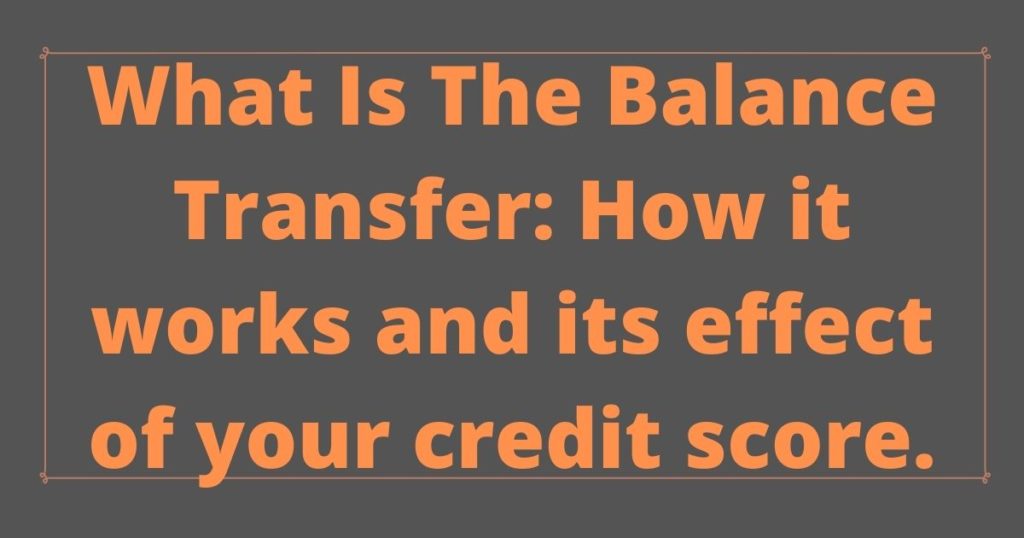Have you tried to open a credit card, but the application was rejected and You’re not sure what happened or why you weren’t approved? Without a clear understanding of the factors credit card issuers consider when they apply for a credit card, it’s hard to solve the mystery and figure out what to do next.
To improve your credit card approval rate, start by improving your credit, checking your eligibility, and gathering all information you needed for the application. This could be proof of employment, having a good credit score, and paying off some of your existing debts. It is also important to evaluate your current financial situation and put measures in place on how you intend to use the credit card to avoid accumulating credit card debt.
Credit card eligibility requirements
Before we dive into factors credit card issuers consider on new credit applications, let’s evaluate basic credit card eligibility requirements.
- Proof of income. Before you get approved for a credit card, you must have proof of income. This is necessary because the lenders want to know that you have the ability to pay the loan you are being given. Your income comes in the form of wages, retirement incomes, rental incomes, dividends, interest, salary, etc.
- Credit score. To get approved for a credit card, it is best to have a good credit score. But, some credit card issuers might approve your credit card application even if you have a bad credit score. If you are getting started with credit or have a thin credit file, consider a secured credit card or become an authorized user of a credit card account to help you build credit.
- Age requirements. You must be at least 18 years old to apply for a credit card on your own or become an authorized user of a credit card in case you are under 18.
- Residency requirements. Most credit card companies give credit cards to U.S. citizens or permanent residents. However, there are other credit cards designed for international applicants.
What information do you need when you apply for a credit card?
The process of getting approved for a credit card starts with an application. The application will ask for information about yourself, your financial information, and your residency.
The following is a list of information you need when you are applying for a credit card.
- Your full name
- Date of birth
- Mailing address
- Social security number
- Email address
- Phone number
- Employment status, and how much you make, plus other sources of income you have
- You might also need to specify other forms of debts you have
- Your monthly expenses including housing, utility, etc.
- Country of citizenship
What are the factors credit card issuers consider?
When assessing your credit card application, there are several common key factors credit card issuers consider. Here are key factors that affect your credit card approval rating.
1. Credit history
The first and foremost factor lenders consider when you apply for a credit card is your credit history. Your credit history shows how long you have been a credit user and your behavior toward debts. This includes looking at your credit score, which is a numerical representation of your creditworthiness.
2. Credit score
Your credit score is one of the factors credit card issuers evaluate when you are applying for a credit card, especially without a job. Having a good credit score improves your chances of having your credit application approved.
Related: Get a 700 credit score in 7 simple steps
3. Your income
Your income shows your ability to pay off any balance you will have on your credit card. While having a steady job can provide a sense of stability to lenders, being unemployed doesn’t necessarily mean you won’t be approved. Lenders will assess your income from various sources, including any unemployment benefits or freelance work you may have.
4. Debt-to-income ratio
Another key factor credit card companies consider when assessing your application is your debt-to-income ratio. This feature helps lenders evaluate how much debt you have considered to your income and your ability to pay off your credit card bills. A higher ratio indicates that you carry too much debt already which increases the risk of default, should you get more loans.
5. Credit card utilization rate
One of the biggest factors credit card issuers consider is your credit utilization. Your credit utilization is the ratio of your much you have spent on your revolving credit such as credit cards compared to the available credit limit. A higher ratio shows that you are relying on debt to cover your expenses which is a red flag for many lenders.
So, if you are planning to apply for a credit card, make sure your credit utilization ratio is kept low (under 30% when possible). Otherwise, you might easily be denied a credit card.
6. Hard inquiries
Recent hard inquiries might not look good on your credit reports when you are applying for a credit card. A hard inquiry appears on your credit reports when you apply for credit. For example, if you recently applied for a car loan, the lender requested to view your credit profile which resulted in a hard inquiry. Having too many hard inquiries might send a negative signal as they show that you are working so hard to get credit. Which is also a sign of financial hardship and higher risk.
Related: How long do hard inquiries stay on a credit report?
7. Negative items on your credit reports
Negative information on your credit reports is some of the biggest key factors credit card issuers consider when you are applying for a credit card. For example, if you have a foreclosure or bankruptcy on your credit report, most credit card issuers will be hesitant in approving your credit card application.
Keep in mind that the effect of negative items on your credit diminishes over time. For example, a foreclosure that has been on your report for six years will have less effect on your credit compared to a recent foreclosure.
Here is a guide to all negative items on your credit report and how they affect your credit.
8. Number of delinquencies
Another factor credit card companies consider when you apply for a credit card is the number of delinquencies on your credit report. Delinquency simply means being late on your payments or completely failing to pay your bills. Delinquent payments can result in loan default.
Lenders evaluate this factor in an effort to understand your payment behavior. At the end of the day, the lenders want to know if you are dependable and financially reponsible. If you have delinquent payments on your credit reports, you might be denied a credit card.
9. Your overall financial situations
In addition to credit history and income, lenders will also take evaluate your overall financial situation. This includes your existing debts, such as loans or mortgages, as well as your savings and assets. Lenders want to see that you have a solid financial foundation and are capable of managing your finances responsibly, regardless of your employment status.
10. The credit card issuer might also check how many credit cards you have already
Credit card issuers may also consider the number of credit cards you currently have. While it’s not a hard-and-fast rule, having too many credit cards can raise concerns about your ability to handle additional credit. On the other hand, having no credit cards at all may indicate a lack of experience in managing credit. Finding the right balance and demonstrating responsible credit utilization can increase your chances of getting approved for a credit card.
11. Your legal status (citizenship/permanent residence, etc)
While there are credit cards for international individuals, most credit card issuers require credit card applicants to be permanent residents or U.S. citizens. However, there are credit cards designed for international applicants. For example, if you are an international student in the United States, you can easily get a student credit card.
How to get a credit card with no credit?
If you want to get a credit card without credit, it might be harder for you to get approved. To improve the odds of getting approved for a credit card with no credit, apply for starter credit cards such as student credit cards. You can also apply for secured credit cards which are types of credit cards that require a deposit.
Another option to get a credit card when you don’t have credit is to use a co-signer. A co-signer is a person who vouches for you and takes responsibility when you fail to make your payments. Make sure that you pick someone with good credit to increase the odds of getting approved for a credit card.
Related: What is an authorized user on a credit card?
What to do before applying for a credit card?
Before applying for a credit card, it is best to take an inventory of your financial situation. At the end of the day, credit cards are a form of debt that can wreck your credit and finances if used in the wrong way.
Here are a few things to do before applying for a credit card
- Know why you need a credit card. Before you apply for a credit card, it is essential to know why you need it in the first place. This will help you apply for the right credit card and keep your utilization ratio at a minimal level.
- Apply for the right credit card. To reap the full benefits of having a credit card, you need to apply for the right credit card. For example, if you want a credit card for daily spending, having a cash-back credit card will be beneficial. Not only that you will get discounts for using the card, but you will also build credit with it.
- Build an emergency fund first. Having an emergency fund is always the best decision you can make with your finances. This fund act as a safety net during unexpected emergencies such as the loss of a job, expensive medical bills, etc. You should have at least 3 to 6 months of expenses saved in your emergency fund.
- Know that credit cards are debts. Credit cards are a form of revolving credit. This means that if you don’t pay off your credit card balance, you will accumulate debt which is hard to pay off due to high and compounded interest.
- Become financially responsible. Credit cards come with the highest interest rates that are also compounded. This means that you can easily get into credit card debt. If you are not financially reponsible or you engage in excessive spending, credit cards might not be right for you.
- Pay off your existing debts. Before you apply for a credit card, pay off some of your debts to avoid putting financial strain on your income.
- Decide how you are going to use your credit card. A big mistake a lot of people make is to put all of their expenses on credit cards. By doing so, they end up using all their available credit limits which leads to high credit utilization ratios and lower credit scores. To avoid falling into the same financial trap and protect your credit, decide how you will use your credit cards ahead of time. For example, you can choose to use your credit card only for gas, food, and related expenses. You can also put a limit on your utilization ratio. Once that limit is reached, start using cash.
How many credit cards should I have?
Credit cards are essential when it comes to building credit and boosting your credit score. However, they are not the only forms of credit accounts you can have. Credit cards also carry more risk as they come with higher annual percentage rates (APRs). Meaning you can easily accumulate credit card debts.
For this reason, it is best to keep the number of credit cards you carry at a minimum number. Having 2 to 3 credit cards at a time is the best idea. Too many credit cards can lead to spending temptations which lead to financial disaster.
If you want credit cards to build a credit score, it is best to have a good mixture of credit accounts instead of getting too many credit cards. This is because your credit mix affects 10% of your FICO score. A good credit mix should have revolving credit accounts such as credit cards and personal lines of credit, and installment loans such as mortgage, car loans, or student loans.
More credit card tips
Can you buy a car with a credit card: How to do it right?
How to get a cash advance from a credit card?








